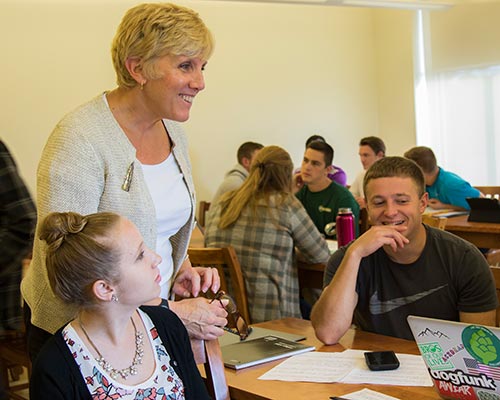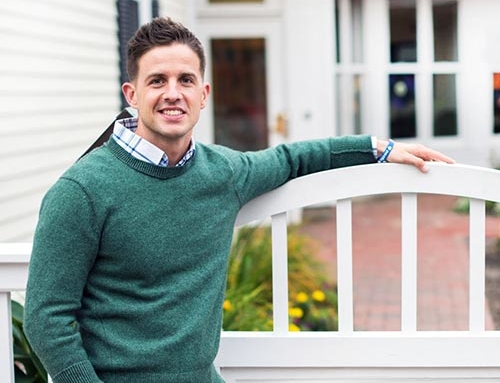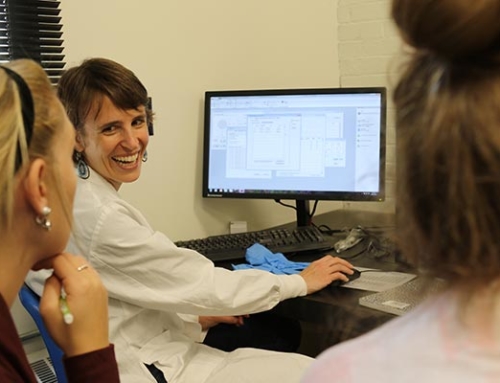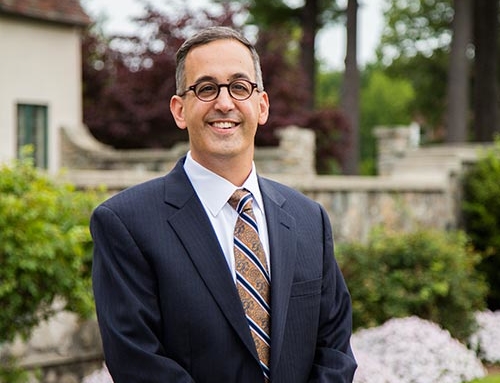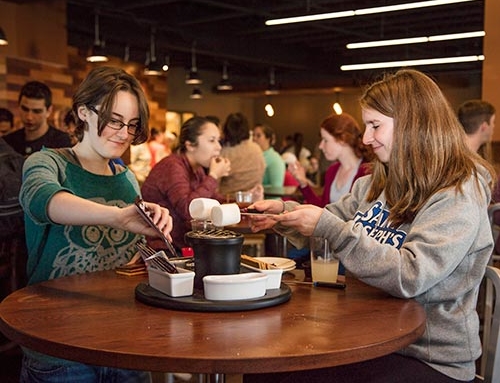Student Entrepreneurs Tackle Real Problems.
By Ann Swardlick
“The goal of the entrepreneurship course is to give students direct experience with the process of starting a business, using real and highly relevant business challenges,” explained Professor Beth Richardson after class one day in late September. Real and highly relevant is key, because some of these businesses may actually be launched on campus, generating revenue for the College, opportunities for students, and addressing critical needs within Maine.
Offered for the first time this fall, the entrepreneurship course is a deep dive into the basics of the Lean Startup methodology developed by Eric Ries in 2008. His approach, which has been embraced everywhere from Silicon Valley to Harvard Business School, focuses on a problem to be solved, rather than a product to be produced.
“The students need to generate viable ideas that integrate with problems—and to come up with real solutions,” said Richardson. “This kind of thinking is new to them. It’s been challenging, but they’re getting there.”
Many of the problems that Richardson’s students are tackling reflect the need to address regional food security issues, the growth of Maine’s food and beverage industry, and the development of the local agricultural economy in Greater Portland and the Lakes Region. These are problems that Saint Joseph’s Entrepreneur-in-Residence, Peter Nielsen, has also been approaching in his work to develop the College’s mission-aligned businesses.
The entrepreneurs in Richardson’s class were introduced by Nielsen to a set of challenges that revolve around the needs of farmers, food entrepreneurs, health-conscious consumers, and other potential customers in the Sebago Lakes region. Students were then asked to frame the problems and seek ways to utilize the College’s assets, like the organic farm and Stone Barn event center, in business models that offer financially viable and environmentally responsible solutions.
All sorts of ideas were being floated when Nielsen first visited the entrepreneurship class. Students were clustered into five teams, deep in brainstorm mode, focused on defining the problems their businesses will address.
For example, there’s the problem of poultry processing capacity in Maine. With only two such plants in the state, chicken farmers have to travel significant distances to get their birds ready for market, resulting in very few farms now raising meat birds in Maine. Seniors Max McCoomb and Dalton Roberts-Montreuil are part of the team that chose to tackle this problem
“We interviewed local farmers and found them very open to a new processing plant,” said Dalton. “However,” he admitted, “we were surprised at how difficult it would be to build. There are so many laws and regulations tied to a plant like this.”
Max added, “The course has opened up my eyes to a lot of issues: location, community impact, marketing, money—there are a lot of factors to consider.”
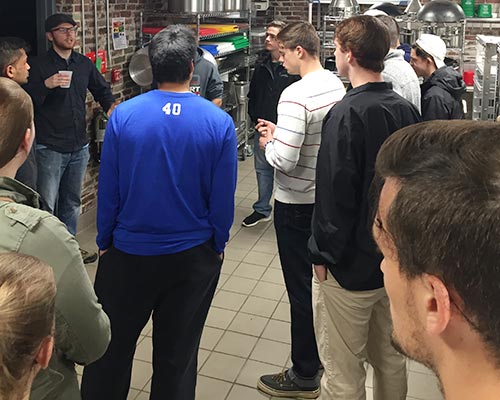
Photo Caption: Students visit Fork Food Lab in Portland to learn about the food business incubator space from co-founder Neil Spillane.
Another student team is considering day camps: their plan is to utilize the farm and other College facilities during April vacation and summer shoulder seasons, when town recreational programs aren’t in session. The initial idea was to use sustainable agriculture as a theme for the camp.
To gather some customer intel on the day camp business, senior Lauren Sharples and her team polled 50 prospects and found that working parents loved the idea. But the sustainable agriculture theme? Not so much. Lauren explained, “We learned we have to incorporate the lakefront and other recreational facilities on campus in order to market the product to children as being fun!”
All the teams are engaged in this kind of customer research, which is central to the Lean Startup approach. Before you design a product, find out if anyone will buy it—and learn as much as you can about your target customers.
What’s different about this course is that it goes beyond the theoretical, said Richardson. “Students are being asked to marry their knowledge and skills with new, creative ideas. Their task is to have a viable business plan that could be launched.”
Nielsen is delighted to have the students bringing their fresh entrepreneurial perspective to the same entrepreneurial problems he is tackling with College administrators and policy makers statewide. “It’s critical that students participate in identifying the problems and the solutions. Their curiosity, confidence, and determination are already influencing how these issues will be addressed by Saint Joseph’s. I trust them to lead us to the right answers.”
Dalton Roberts-Montreuil was enthusiastic about the course. “It’s nice to deal with a real problem,” he said, “not a ‘what if.’ It’s here, it’s now, we’re living in it.”
His teammate Max agreed. “Every class is like a meeting, not a lecture. I think a lot of people learn better like this.”
